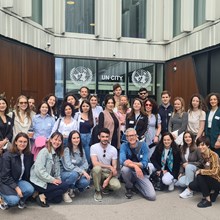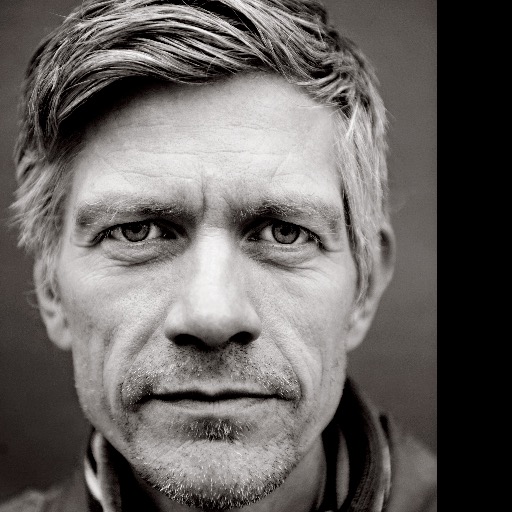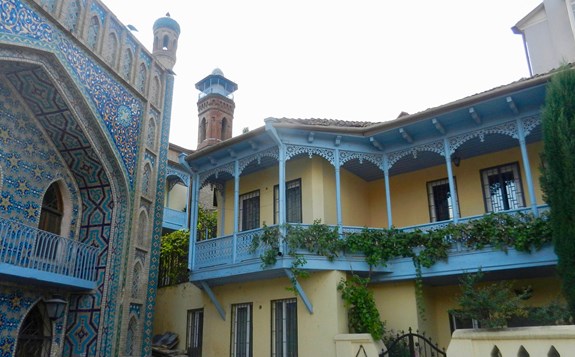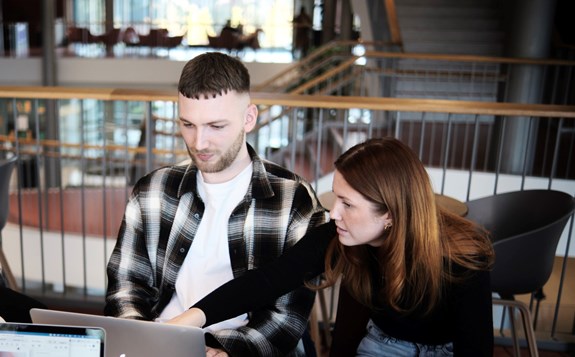We use cookies on this website. Cookies help us deliver the best experience on our website. Read about cookies.
-
- Education
- Education
- Programmes and courses
- Applications and admissions
- Tuition fees
- Scholarships
- Exchange studies at Malmö University
- Study Guidance
-
- After admission
- After admission
- Moving to Malmö
- Pre-orientation
- Arrival guide
-
- About studies at Malmö University
- About studies at Malmö University
- Why choose Malmö University
- Understanding university studies
- Connect with our students
On the page -
- Research
- Research
-
- Doctoral studies
- Doctoral studies
- Doctoral courses
-
- Doctoral schools
- Doctoral schools
- Adaptation of urban space through sustainable regeneration
- ComBine
- Culturally Empowering Education through Language and Literature
- Education, Learning and Globalisation
- Finding ways in a time of great future challenges (FinnFram)
- Swedish National Graduate School in Science and Technology Education Research
- Learning in Multicultural Societal Contexts
- Pedagogy and Vocational Skills
- Relevancing Mathematics and Science Education (RelMaS)
- Sustainable Movement Education
- The National Research School for Professionals in Social Services
- Research subjects
-
- Research centres
- Research centres
- Biofilms Research Centre for Biointerfaces
- Citizen Health
- Imagining and Co-Creating Futures
- Institute for Urban Research
- Malmö Institute for Migration Studies
- Literacy and Inclusive Teaching
- Centre for Work Life Studies
- Sustainable Digitalisation Research Centre
- Centre for Sexology and Sexuality Studies
-
- Research publications
- Research publications
- Search for research publications in Diva
- Malmö University Press
- Research events
- Participate in a research study
- Coffee Break Quiz
On the page -
- Collaboration and Innovation
- Collaboration and Innovation
-
- Levels of collaboration
- Levels of collaboration
-
- Local collaboration
- Local collaboration
- Muvah
- Regional collaboration
- National collaboration
-
- International collaboration
- International collaboration
- UNIC
- Innovation
- Collaboration with students
-
- Collaborate with researchers
- Collaborate with researchers
- Labs and facilities
- Culture collaboration
- Support Malmö University
- Alumni & Friends
On the page -
- About us
- About us
-
- Faculties and departments
- Faculties and departments
-
- Faculty of Culture and Society
- Faculty of Culture and Society
- Department of Global Political Studies
- School of Arts and Communication
- Department of Urban Studies
-
- Faculty of Education and Society
- Faculty of Education and Society
- Department of Childhood, Education and Society
- Department of Sports Sciences
- Department of Culture, Languages and Media
- Department of Natural Science, Mathematics and Society
- Department of Society, Culture and Identity
- Department of School Development and Leadership
- The Centre for Teaching and Learning (CAKL)
-
- Faculty of Technology and Society
- Faculty of Technology and Society
- Department of Computer Science and Media Technology
- Department of Materials Science and Applied Mathematics
- Faculty of Odontology
- University Dental Clinic
-
- Find and contact Malmö University
- Find and contact Malmö University
- Visit Malmö University
-
- News and press
- News and press
- Graphic manual
- Map of the buildings (Google Maps)
- Merchandise
- Supplier information and invoice management
- Whistleblowing
- We will help you with your questions
- Management and decision-making paths
-
- Malmö University's strategy 2030
- Malmö University's strategy 2030
- Sustainability
- Widened recruitment and participation
- Quality assurance work at the University
-
- Malmö Academic Choir and Orchestra
- Malmö Academic Choir and Orchestra
- Student work – video pieces
-
- Annual Academic Celebration
- Annual Academic Celebration
- Academic traditions
- Meet our new professors
- Meet our new doctors
- Honorary doctors
-
- The University in a troubled world
- The University in a troubled world
- Campus total defence
On the page
The Swedish Institute Academy for Young Professionals (SAYP)
Young Professionals – Eastern Europe
This page contains information about The Swedish Institute Academy for Young Professionals (SAYP), eligibility, and how to apply. The programme is a collaboration between Malmö University, the Department for Civil Service Management at the State Chancellery of Moldova and the Europe-Georgia Institute
About the programme
The Swedish Institute Academy for Young Professionals (SAYP) at Malmö University is a hybrid training programme called ”How to Make Participatory Governance Work”. The focus of the programme is participatory governance and inclusive democracy with a strong emphasis on EU accession criteria and combating corruption.
The training programme will start with an online session 24–26 March, followed by onsite trainings in Chișinău 4–8 May, and Malmö 14–23 June. After the training programme there will be opportunities for follow-up activities.
Participation is free of charge and include all activities, meals, accommodation, and travel.
Programme structure
The programme is divided into two parts.
Part 1
Firstly, the training programme consists of 12 themes connected to EU accession chapters and UN SDGs. Each theme, and its activities, is an example of how to increase citizens’ or societal engagement in public affairs and how to design an appropriate public structure to include societal engagement. Some are focusing on preconditions for engagement, such as the importance of transparency, and others are focusing on methods of involvement and inclusion, for example e-democracy or how to foster youth to active citizens. Jointly the activities are aligned with the values of the European Union and support the countries current work with the EU accession process.
Part 2
The second part of the programme consist of follow-up activities in the form of both peer-shadowing opportunities and project work. Both activities are created to help participants experience and pilot ideas from the training programme in real-word settings.
Learning methods
The programme is designed as a joint learning process with participants from different societal sectors – public institutions, civil society and private sector. From experience we are convinced that learning is best achieved by collaborative and knowledge-sharing exercises. The participants will be encouraged to contextualise and make the knowledge and tools of the programme applicable and relevant for their own organisation and society.
The programme aims to give you:
- Increased knowledge of methods to make public governance more inclusive and participatory.
- A deeper understanding of various strategies and best practices that promote citizen engagement and transparency in governance.
- Enhanced capability to implement methods of inclusion and participation.
- Improved ability to adapt, design, and tailor methods and tools of inclusion and participation to specific legal, cultural, and institutional environments, ensuring they are both applicable and contextually useful.
- An expanded professional network of peers, both nationally and regionally.
Why SAYP at Malmö University?
Rebuilding trust in democracy and advancing the rule of law are critical for Eastern Partnership countries as they pursue closer ties with the European Union. However, political polarization, societal divides, and shrinking civic space continue to undermine reform efforts and erode public trust in governance. Currently, we are witnessing a global trend towards autocratization. This trend refers to the gradual erosion of democratic institutions and practices, leading to more authoritarian forms of governance and allowing widespread corruption. This includes the weakening of free media, civil society, and an independent judiciary. We see increased repression of political opposition, activists, journalists, and academia, aiming to silence dissent and consolidate control. For civil servants, there is a risk of reduced professional autonomy, increased political pressure, suppression of dissent, and a rise in corruption and patronage networks. In the participating countries, there is a need to mitigate and curb the risk of such developments.
Our programme is designed with these threats in mind. We strongly believe that by fostering a culture of transparency and accountability, participatory governance helps bridge societal divides and build trust between citizens and their governments.
The themes in the programme are proven to be concrete ways to increase transparency, democratic norms, and citizen engagement. The aim is to leverage academic and experienced knowledge to provide context-adapted, hands-on strategies and means that can be implemented. The emphasis throughout the programme is on strengthening capabilities to enable a more transparent, inclusive, and participatory society, giving participants the opportunity to pilot and implement these tools and methods. By focusing on consultative processes, transparent lobbying, participatory budgeting, social audits, and accountability measures, we aim to support resilient democratic institutions. These efforts will not only address immediate governance challenges but also help to lay the groundwork for sustainable democratic development, fostering a culture of openness and accountability that can withstand future pressures. By implementing these strategies, the programme aims to create a more transparent, inclusive, and participatory society.
Follow-up activities provide opportunities for the participants to implement and pilot methods and practices covered in the training programme.
Who can apply?
For SAYP 2026 we welcome applications from professionals born between 1985-2000 from Armenia, Azerbaijan*, Belarus*, Georgia*, Moldova and Ukraine (either as a citizen or as a resident). You need to be currently employed
- Public servants (non-political civil servants at local, regional, or central level)
- Policymakers (politicians, government officials, employees of political parties)
- Civil society workers (CSO/NGO volunteers/employees)
- Leaders within the private sector
We aim for a balanced mix of participant from public, civic and private sector and will consciously assembly mixed groups throughout the programme which according to our experience, will increase the understanding for participatory governance.
A requirement for any applicant is a good command of the English language (the degree of proficiency should be specified in the application) and a relevant education, consisting of at least three years of previous studies.
If you are applying from Belarus, Azerbaijan or Georgia
* Belarus, Azerbaijan, and Georgia can only receive participants from civil society.
How to apply
Open for applications 17 June–26 August, 2025.
You apply by submitting:
- CV Europass
- Motivation letter
- Reference letter
Send your application to SAYP@mau.se. Use the templates available on si.se. You are not required to submit an English language certificate.

Testimonials from Malmö University SAYP alumni
Alumni share their experiences from the programme and what you can expect.

Testimonials from Malmö University SAYP alumni
Alumni share their experiences from the programme and what you can expect.
Cristina Voroneanu, Good Governance Advisor, Primaria Mea, Chisinau, Moldova
"SAYP represents a great opportunity to study and explore common problems faced by our local and national government with colleagues from neighbouring countries. Through lectures, group work, study visits and constant discussions you will get a deeper understanding of the issues we all struggle with, and potential solutions based on the Swedish model. After the course I took advantage of the opportunity provided to put into practice new knowledge and skills by developing and implementing a project idea. This helped the NGO I work for accelerate our work in the area of citizens’ access to information."
Anete Kopštāla, Health Promotion Coordinator at Liepaja City Municipality Administration, Latvia
“SAYP definitely will broaden your scope, both professionally and personally. The areas and topics covered by the SAYP provide a broader view of various public administration processes basing on deeply rooted Swedish experience in good governance practice. Cooperation and experience sharing with other participants enriches the experience gathered through SAYP. You grow not only professionally, but also personally. SAYP is definitely an opportunity to acquire new knowledge, shape your mind, experience diversity, find new contacts and networks for future projects. Distance learning brought us even closer. Zoom in on new knowledge, friendship and opportunities by being part of the SAYP-community!”
Viyaleta Volkava, Reintegration Assistant, IOM, Belarus
“The lecturers and participants of the SI Academy for Young Professions are the heart of this learning exercise. This is thanks to their diversity of thought, opinion and expertise that during SAYP one looks beyond the topic of modern governance unravelling sustainability, gender mainstreaming and public ethics in a most engaging way. The excellent visits to Swedish governmental and non-governmental agencies make SAYP particularly practice-oriented, and open-up an opportunity to network extensively outside the academic settings. Highly recommended!”



